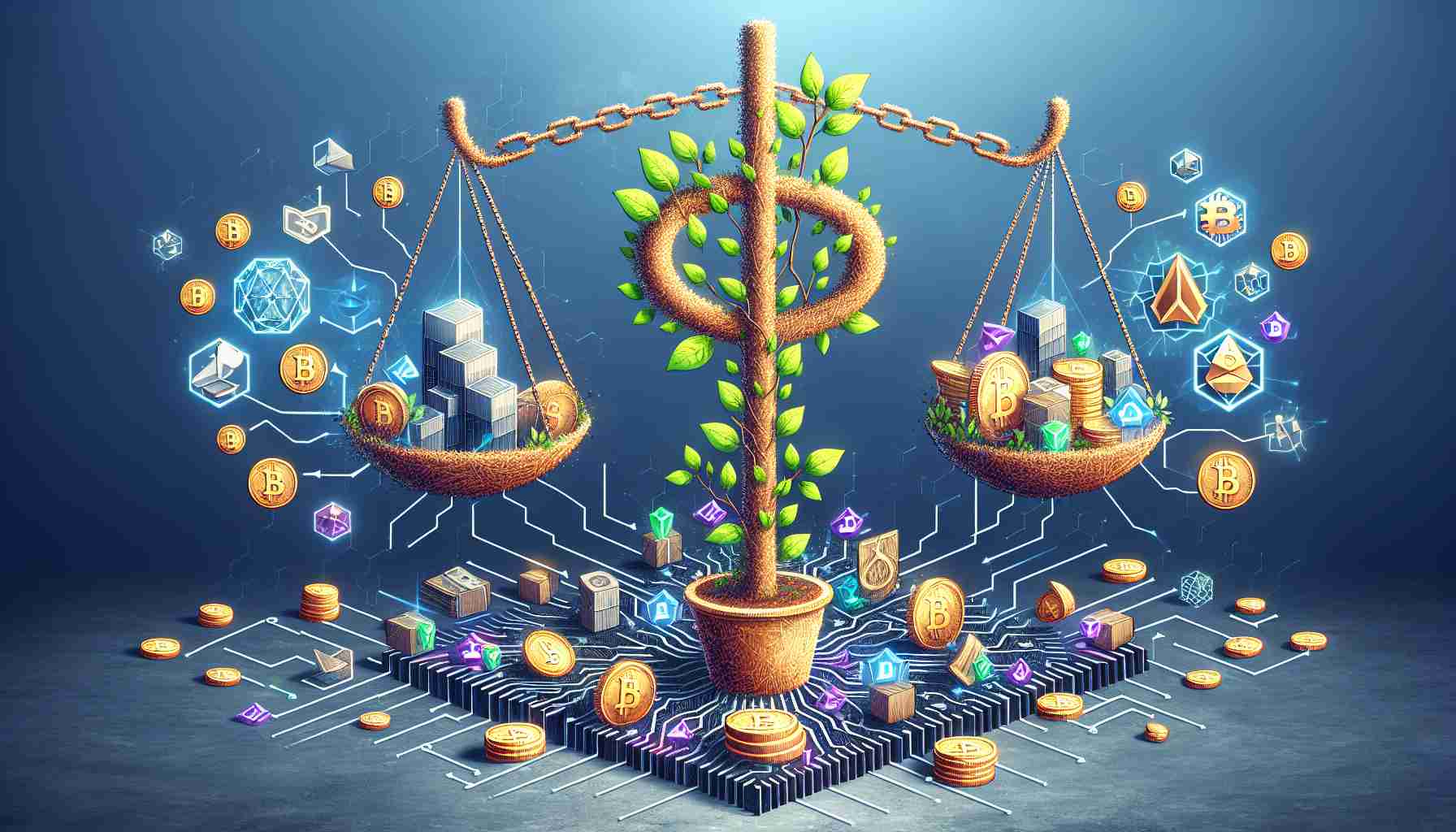The world of finance is undergoing a transformative shift with the advent of decentralized financial services, known as DeFi. Utilizing the innovative blockchain technology, DeFi has emerged as a leading-edge phenomenon that allows individuals to engage in various financial activities such as borrowing, lending, and trading assets directly with one another, bypassing traditional financial intermediaries.
DeFi platforms empower users by placing control back into their hands, circumventing the need for centralized institutions. This not only streamlines financial transactions but also enhances accessibility, allowing for a more inclusive financial landscape. What stands at the core of this revolutionary movement is the shift towards a system where transactions and financial agreements are executed automatically and securely without the oversight of banks or other financial institutions.
Equipped with smart contracts and distributed ledgers, DeFi applications ensure that all operations are transparent, tamper-proof, and aligned with the pre-set rules encoded into the blockchain. The rise of these platforms signifies a major step towards an autonomous financial ecosystem where users enjoy lower fees, faster transactions, and heightened privacy.
As DeFi continues to expand, it is poised to redefine the way we think about financial services by fostering a secure, efficient, and more democratically accessible financial system for all. This paradigm shift marks an essential breakthrough, democratizing financial services and making them available to anyone with an internet connection, free from the constraints of conventional financial structures.
Important Questions and Answers
What is DeFi?
Decentralized Finance, or DeFi, is a blockchain-based form of finance that does not rely on central financial intermediaries such as brokerages, exchanges, or banks to offer traditional financial instruments but instead utilizes smart contracts on blockchains, the most common being Ethereum.
What are smart contracts?
Smart contracts are self-executing contracts with the terms of the agreement directly written into code. They run on blockchain networks and automatically enforce and execute the terms of a contract when predetermined conditions are met, without the need for an intermediary.
Key Challenges and Controversies
– Security: Despite the security promises of blockchain, DeFi platforms have been susceptible to hacks and exploits due to vulnerabilities in smart contract codes or platform architecture.
– Regulation: The decentralized nature of DeFi challenges traditional regulatory frameworks, raising questions about compliance, consumer protection, and how to apply existing financial laws in a decentralized context.
– Scalability: Current blockchain networks face scalability issues, with limited transactions per second (TPS) and high gas fees during peak usage, which can hinder DeFi adoption.
– Accessibility: While DeFi aims to be more inclusive, there is still a knowledge barrier for the average user, and access still requires a certain level of technological sophistic
Advantages and Disadvantages
Advantages:
– Financial Inclusion: DeFi can provide financial services to individuals who are unbanked or underbanked, thus contributing to greater financial inclusion globally.
– Transparency: Blockchain’s transparent nature allows for all transactions to be openly visible, which helps to ensure fairness and build trust among users.
– Efficiency: With the elimination of intermediaries, DeFi services can operate more efficiently, often resulting in lower costs and faster transaction times for users.
Disadvantages:
– Technical Knowledge Required: Engaging with DeFi platforms typically requires a certain degree of technical understanding, which can be a barrier to entry for many potential users.
– Market Volatility: The cryptocurrency markets associated with DeFi are highly volatile, which can lead to significant financial risks for participants.
– Lack of Insurance: Funds deposited in DeFi platforms are not insured like traditional bank deposits, posing a higher risk of loss.
For additional information on blockchain, which is foundational to DeFi, refer to the following link: Blockchain.com.
For broader information about decentralized technologies and cryptocurrencies, one might visit: Bitcoin.org.
Remember to perform thorough research and due diligence before interacting with any DeFi platform or cryptocurrency exchange. Please consult with financial advisors or professionals when necessary to understand the risks and benefits of DeFi.



